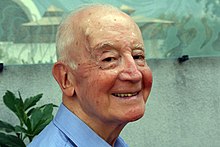Carlos Valles
Self-acceptance – but who am I?
Carlos G. Valles was a Spanish Jesuit priest who worked in India for over 40 years so his writing often includes stories and thinking from Eastern traditions. He writes about the courage to be oneself – which is about living the fullness of the present with the acceptance and knowledge of who we are. Self-acceptance requires knowing who one is – what is this self which has my name? He heard about the spiritual practice of living in the present moment as a boy of 15, but found the reality of trying to do so impossible:
‘The idea remained … high up in my head. …The years went by, and past and future rode on my mind as wilful tyrants that scattered my efforts and tore the tissues of my spirit along all the directions of unstable thought … the idea still beckoned to me, but its practice escaped all my repeated efforts and willful resolutions. It was not easy to live in the present.’
Is there any method? Valles quotes Krishnamurti who when asked that question responded: ‘There is no method’. Rather the determination to be oneself, to live in the moment and to be present to one’s ultimate identity is, Valles thinks, a long process. He quotes the British method of cultivating a lawn: prepare the ground, remove the offending roots, sow the seed, spread manure and water regularly for six hundred years as coming closest to the attitude required for greening the self. If we learn to watch ourselves then we will find ourselves:
‘To watch my own thoughts, to uncover the roots of my conditionings, the birth of my prejudices, the growth of my fears. To watch, to discover, to unearth, to bring to light all that happens in my inner darkness. To bring to the surface of my consciousness all that goes on in my uncensored subconscious. Just to know, to unmask, to make light. No resolutions, no self-imposed exercises, no moral violence. Nature is wise and grace is ready if only we open the way to them by seeing where we stand and realising what we need.’
For Valles the long path to self-discovery and to self-acceptance culminates in being able to ask the same question that Jesus asked his disciples: ‘Who do you say that I am?’ In turn Valles suggests that in contemplation we too can ask the same question to the Divine Presence.
‘And then the miracle takes place that opens the heavens and releases the dove and a voice resounds in the depths of our heart with the whole creation as witness … “You are my beloved child.”’
